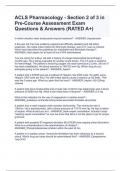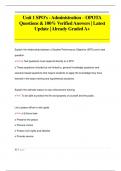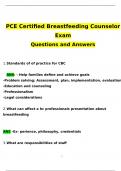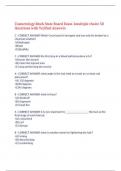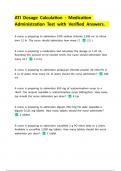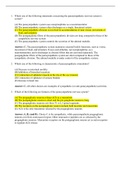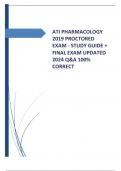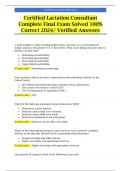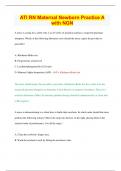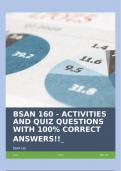Exam (elaborations)
ACLS Pharmacology - Section 2 of 3 in Pre-Course Assessment Exam Questions & Answers (RATED A+)
- Course
- Institution
A 62-year old man has suddenly experienced difficulty speaking and left-sided weakness. He meets initial criteria for fibrinolytic therapy, and a CT scan is ordered. Which best describes the guidelines for antiplatelet and fibrinolytic therapy? - ANSWER_Hold aspirin for at least 24 hrs if rtPA admi...
[Show more]
